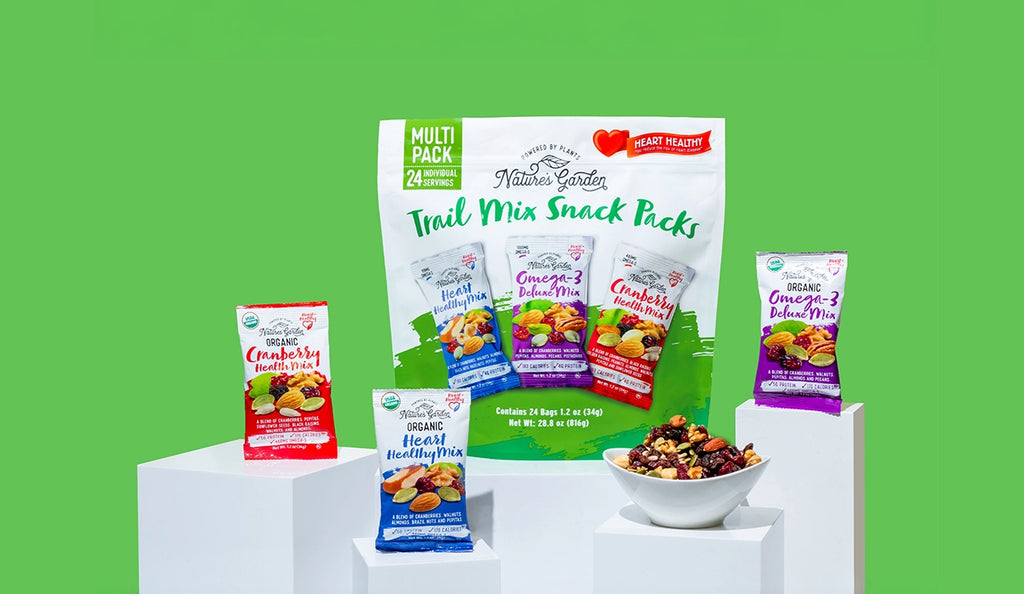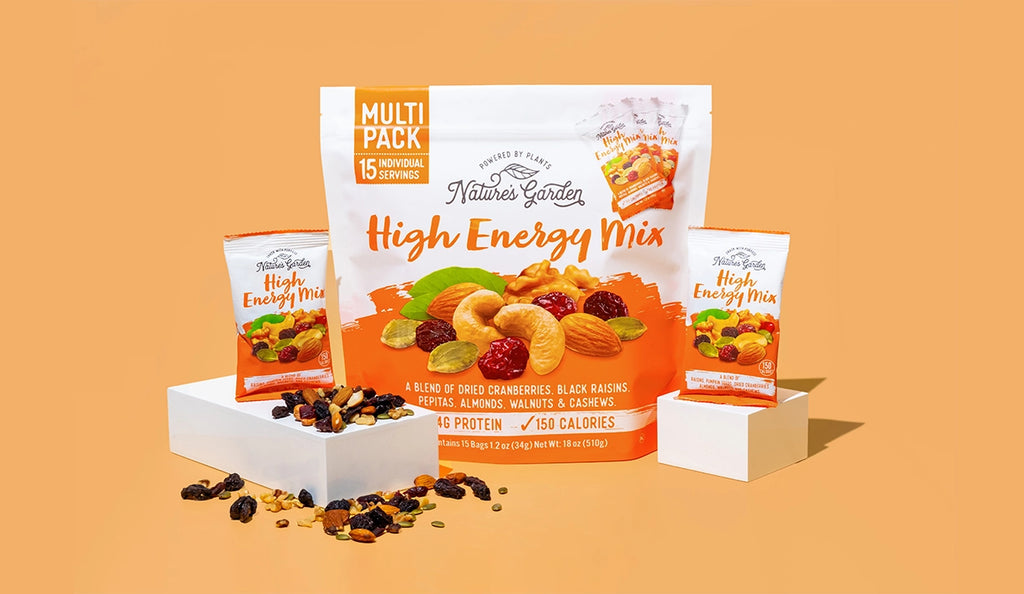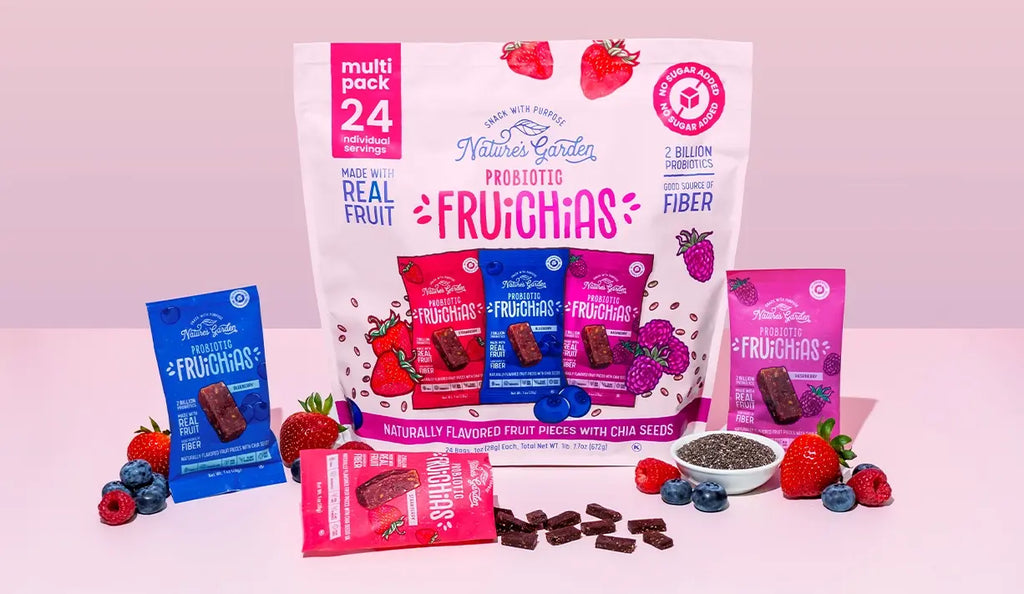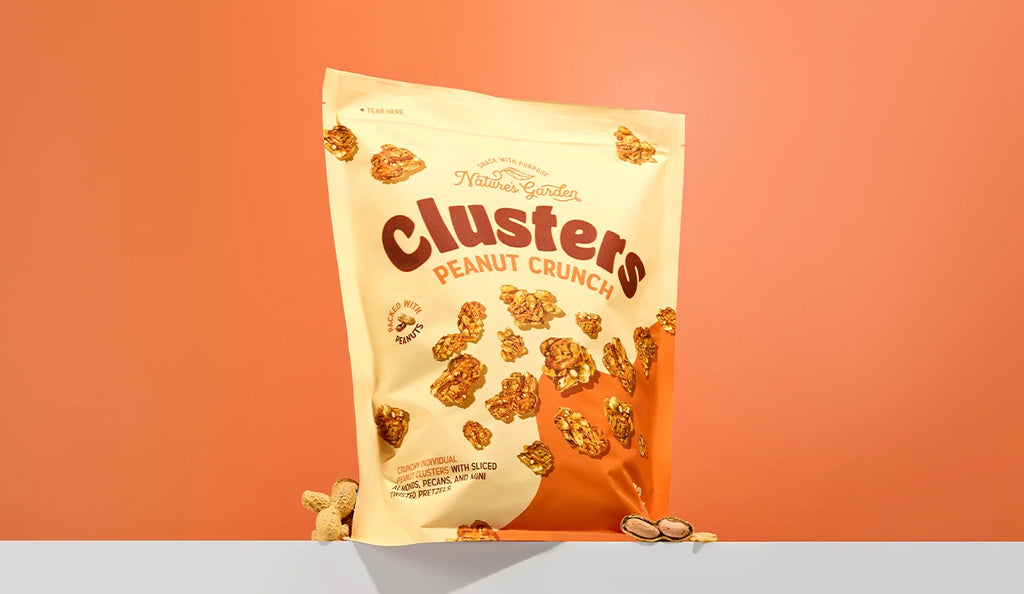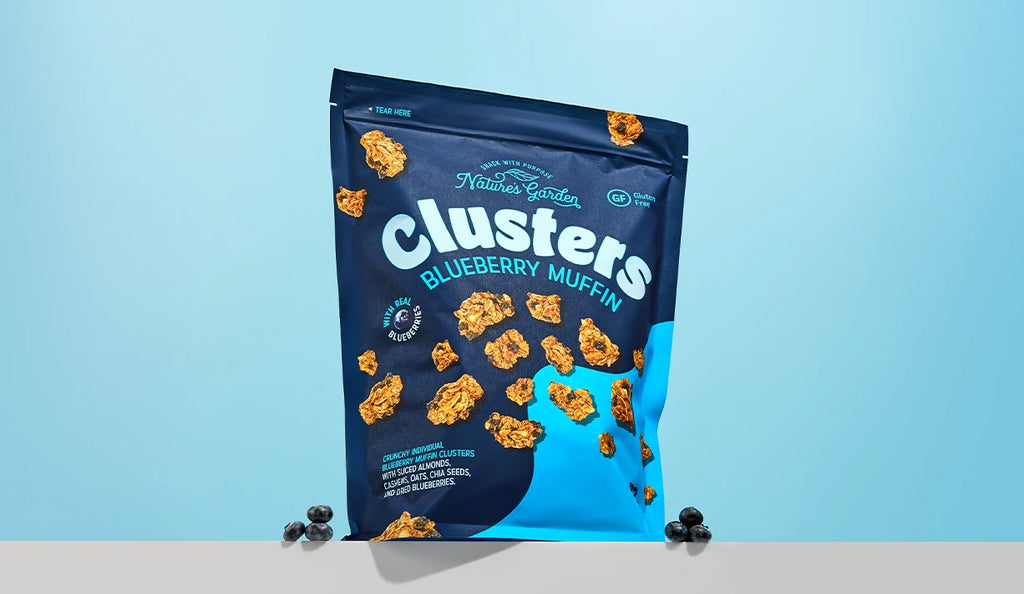Spring is here and that means hiking season has officially begun! Whether you’re ready to tackle your next mountain or simply seeking a quiet, leisurely escape in the woods, ‘tis the season to dust off your hiking boots and embark amidst nature’s wonders.
To make the most of your next outdoor adventure, it’s crucial to fuel your body with the right nutrients before hitting the trail and afterwards to replenish. Here at Nature’s Garden, we know a thing or two about giving your body the fuel it needs to conquer the day… and the trail!
In this article, we’ll explore the key nutrients that will help energize you before your hike, how to support your body’s recovery post-hike, and our top recommendation for trail snacks to ensure your vitality and vigor for every step of the journey.
Lace up your boots, let’s chow down and hit the trail!
Pre-Hike Power Up: Energizing Nutrients
Alright, fellow hikers, listen up! Before you lace up those boots and conquer those trails, let's dive into the world of nutrients that'll make your body sing like a chorus of energized hummingbirds. We're not talking about some run-of-the-mill nutrients here; we're talking about the powerhouses that’ll have you skipping up those mountains like a caffeinated mountain goat on a mission!
First up, we have our trusty sidekick – carbohydrates. Carbs are the energy-packed buddies that will fuel your hike and keep you going strong. Think of them as your hiking hotline, delivering a burst of vitality to your muscles. Load up on whole grains, like quinoa or oatmeal, and wave goodbye to any energy slumps. It's like giving your body a high-five before you even hit the trail.
Next, let's give a round of applause to our friend, protein. Protein is the muscle-building, recovery-boosting superstar that will keep your body in tip-top shape. Pack your pre-hike snack with lean protein sources like chicken, tofu, or even a handful of nuts. Your muscles will thank you for it, and who knows, you might even catch a glimpse of your reflection in a mountain lake and mistake yourself for a Greek god or goddess.
Last but definitely not least, hydrate before you hit the trail. Water is the ultimate elixir of life, keeping your body cool, hydrated, and ready for action. Remember, folks, dehydration is the enemy of the hiker. So pack that water bottle, gulp it down like a champ, and let the refreshing waves of hydration wash away any fatigue that dares to come your way. Trust us, your body will thank you with every step you take.
On The Trail: Snacking Smart
Speaking of hydration, ensuring your thirst is quenched while on the trail is essential. Carry a water bottle and sip regularly to prevent dehydration. If the hike is longer or more challenging, consider packing electrolyte-enhanced drinks or hydrating snacks.
Snacking smart comes down to packing lightweight, nutrient-dense snacks with a high carbohydrate content will keep your energy levels up and your taste buds doing a happy dance. Pack some trail mix with nuts, dried fruits, and a sprinkle of chocolate chips for that sweet burst of motivation. So when the trail gets tough, just remember your snack stash and let those carbs be your cheering squad.
Last but not least, consider carrying electrolyte tablets or powders to replenish vital minerals lost through sweating. These can help prevent muscle cramps and maintain optimal hydration levels.
Post-Hike Replenishment: Nourish and Recover
After your hiking adventure, it's important to give your body the nutrients it needs to recover and recharge. One essential nutrient for recovery is protein. It acts as the building block for your muscles, helping to repair the microscopic damage caused during exercise. You can fuel up with protein-rich foods like chicken, eggs, tofu, or even a protein shake if you're feeling fancy. So, give your muscles some love and let protein be the superhero that mends them back stronger than ever.
In addition to protein, your body craves replenishment of carbohydrates. Carbs are like the energetic friends that swoop in to restore your glycogen stores, which get depleted during prolonged physical activity. Opt for healthy carbohydrates such as whole grains, fruits, and vegetables. They provide a steady stream of energy and help kick-start the recovery process. So, go ahead and enjoy that wholesome bowl of brown rice or indulge in some sweet potatoes to refuel your body like a champion.
Last but certainly not least, don't forget about hydration. Water is the unsung hero of recovery, working behind the scenes to keep your body functioning at its best. When you sweat during a hike, you lose valuable fluids and electrolytes that need to be replaced. So, grab your water bottle and drink up! If you want to add some flavor and electrolytes, consider sports drinks or coconut water. Your body will thank you for keeping it well-hydrated and ready to take on the next adventure.
We’d recommend… Nature's Garden Organic Trail Mix Snack Packs
Now it’s time to dive into the world of Nature’s Garden trail mix – your ultimate hiking companion.
This bag includes 24 individual 1.2oz (34g) servings of our best-selling fruit and nut trail mix including our Heart Healthy Mix, Omega-3 Deluxe Mix, and Cranberry Health Mix. These convenient snack packs feature the highest quality organic ingredients to keep your energy high and belly full throughout your hike.
Each packet contains a harmony of fruits, nuts, and seeds, featuring almonds, walnuts, pistachios, pecans, pumpkin seeds, and cranberries. Cranberries help fight against disease with their antioxidant benefits. Nuts, like the crunchy little ninjas they are, pack a punch of protein and healthy fats, giving you the energy to conquer mountains and leap over fallen logs.
High in fiber, protein, and a rich list of vitamins and minerals, nut and trail mix variety packs work to enrich the body and mind. And with certified organic ingredients in every packet, feel good knowing you’re giving your body the best. Get your hands on a bag of these snack packs to keep you and your family moving and grooving!
In conclusion, when it comes to hiking, what you put in your body can make all the difference between feeling like a mountain goat or a sluggish sloth. Remember, hiking is not just about conquering peaks, it's about enjoying nature, challenging yourself, and having a great time. So, grab your backpack, pack those nutrients, and get ready to embark on a hike that will leave you feeling like you’re king of the world!

